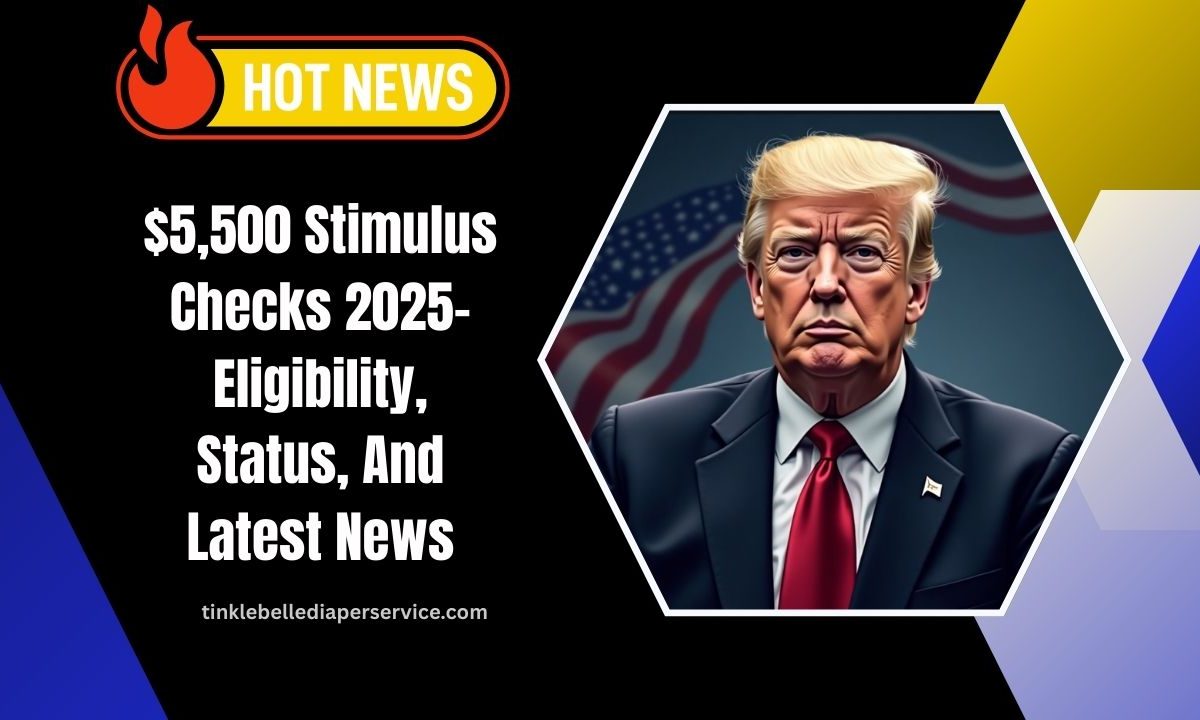As inflation bites into household budgets and economic inequality becomes harder to ignore, a new proposal in 2025 is stirring conversation across the United States — a $5,500 stimulus check under the DOGE Dividend Initiative. But is this federal payment real, and who would qualify?
Here’s a breakdown of the latest updates, eligibility details, and how likely this one-time federal stimulus payment is to happen.
What Is the $5,500 Stimulus Check Proposal?
The $5,500 stimulus check is part of a bold plan by the Department of Government Efficiency (DOGE).
The DOGE Dividend Initiative aims to cut back on government waste and redirect a portion of the savings—up to 20%—to Americans who overpaid taxes in 2021 and didn’t claim refunds.
The idea focuses on “tax fairness” and compensating taxpayers who didn’t receive what they were owed.
Notably, high-profile figures such as Elon Musk, James Fishback, and former Trump administration insiders have thrown their support behind the initiative.
While the plan has made headlines, it’s still a proposal—not a confirmed or approved federal payment program.
Key Details of the $5,500 Stimulus Check
| Feature | Details |
|---|---|
| Program Name | DOGE Dividend (Stimulus Proposal) |
| Proposed By | Department of Government Efficiency (DOGE) |
| Amount Proposed | $5,500 per eligible recipient |
| Payment Type | One-time federal stimulus |
| Eligibility | Based on 2021 tax return status & income |
| Status | Not approved – under review |
| Website | doge.gov |
Who Could Be Eligible for the $5,500 Stimulus?
Eligibility under the current proposal would most likely include:
- U.S. citizens or legal residents with a valid Social Security Number
- Individuals who paid federal income taxes in 2021 but did not claim a refund
- People within certain income brackets (details pending)
- Households that meet a specific income-to-family ratio
- Individuals who can show financial hardship due to inflation or post-pandemic recovery
As the proposal is still in review, criteria may change if the plan moves forward in Congress.
Public & Political Reactions
Public sentiment appears strongly favorable. According to a recent J.L. Partners poll:
- 67% of voters support the stimulus proposal
- Nearly half say they “strongly support” it, especially younger and middle-income Americans
On Capitol Hill, however, lawmakers are divided. Some worry about:
- Impact on the federal deficit
- Potential inflation from pumping money into the economy
- Unclear budget cuts—what programs would be reduced to fund this plan?
House Speaker Mike Johnson has voiced concern, highlighting the risk of overpromising if $2 trillion in savings cannot be reliably achieved.
What Could Be the Economic Impact?
If implemented, economists suggest this plan could:
- Boost consumer spending, especially in lower-income communities
- Support local businesses
- Ease credit card and utility debts for struggling families
However, critics argue the risk of inflation and funding trade-offs could outweigh short-term benefits.
Current Status: Is It Happening Yet?
As of now:
- No official application is available
- No payment dates are confirmed
- The proposal has not passed legislative approval
Beware of online scams or viral posts claiming checks are being sent. The only verified source is doge.gov, the official site for updates.
The $5,500 stimulus check for 2025 is one of the boldest proposals in recent memory. Backed by tech leaders and political influencers, it taps into real frustration about government inefficiency and unmet financial needs.
But until lawmakers act, this remains a possibility—not a promise. For now, stay informed, avoid misinformation, and check doge.gov for verified updates.
FAQs
Is the $5,500 stimulus check confirmed?
No. It is still a proposal under review and has not been approved by Congress or signed into law.
Who is behind the DOGE Dividend proposal?
The plan is introduced by the Department of Government Efficiency (DOGE) and supported by figures like Elon Musk and James Fishback.
When could payments start if approved?
If passed this year, payments could begin as early as late 2025, but that is speculative. No official timeline has been announced.

